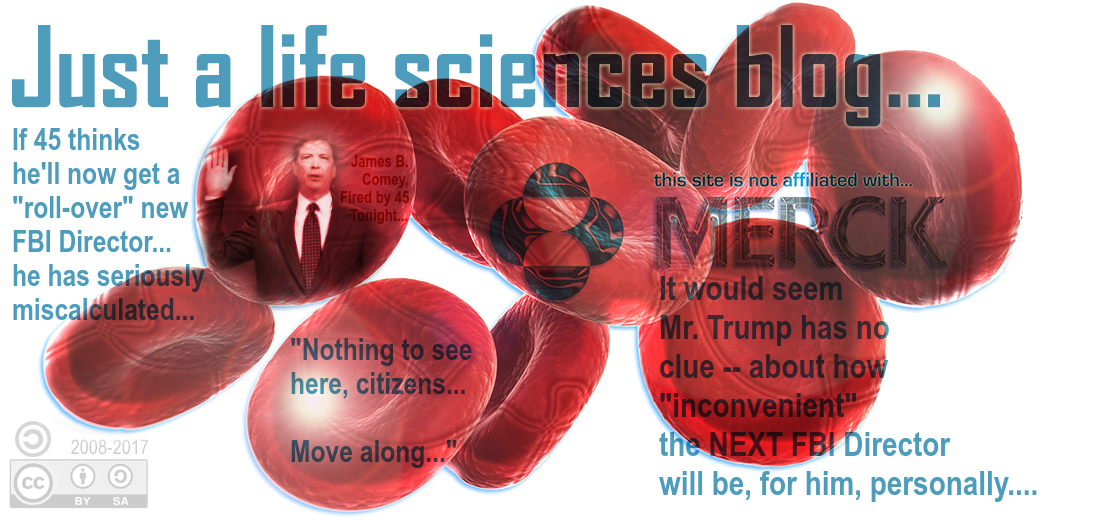Later in the day today, in Brooklyn, the very able Judge Brian Cogan signed an order that affects all federal plaintiffs.
That said, I puzzled on this a bit this afternoon -- as I need to be very careful here, not to provide any substantive legal advice to any individual plaintiff.
But if you are in the federal MDL, you are likely to be contacted by your lawyer (likely during the coming summer), to discuss the general and specific theories of causation being advanced by the expert witnesses. Do pay close attention. Do ask questions. That is as much as I feel comfortable saying.
I will link to the court's order (a short 2 page PDF flie), so you will be aware of the relevant deadline dates.
[And now, apropos of nothing. . . really -- but to be clear regarding the masthead change, tonight -- I do think there isn't too much to worry about on the Comey firing front -- for those of us who still believe in justice under the law. It is a near certainty that even Republicans will seek an independent prosecutor now, for the Trump Russia investigation. It will be the appropriate response, in a functioning system of ordered liberty. So I am. . . sanguine. Signal acquired.]
And with that, I will fall silent. . . .


















3 comments:
This is interesting. Love to hear some more thoughts on this from people. Isn't causation in these types of cases usually a simple no diagnosis before drug, then drug used, then diagnosed with issue?
Hello Anon. --
Now. . . I am speaking entirely as to a hypothetical "law school products liability/medical mal Final Exam" sort of case -- not this particular one, or any particular baldness treatment side effects case or claim.
With that out of the way, the issue is -- under existing case law -- in order to make out a good claim for recovery, one must provide expert testimony that the harm the plaintiff suffered more likely than not occurred due to a specific "mechanism of action" -- one that can be explained by the drug or treatment's documented "on target, or off target," effects.
In this regard, what's often called "but for" causation is not enough. That is, simply showing the time line you've described doesn't rule out -- or even make less-likely -- any competing explanation for the injury. [That is what all of this is about -- this coming summer.]
It is well known that some cancer drugs cause impotence. So, for example, a plaintiff's expert must be able to testify that based on the expert's familiarity with the case, that the particular plaintiff was not ever on cancer meds -- of that sort.
I hope this helps (a little!), and I am sorry that I must answer rather obliquely, but I do have professional obligations here.
Namaste -- do stop back!
Makes sense. Thanks for the insight. I feel like I'm ready to take the final now! :)
Post a Comment